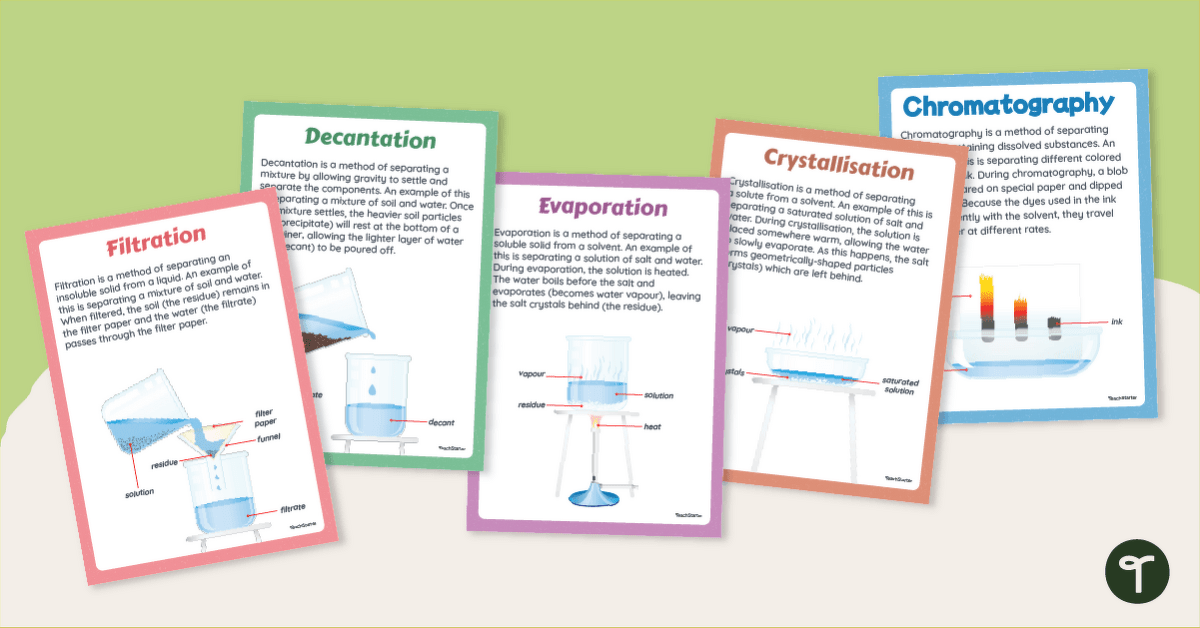Identify common methods for separation of mixtures with our Separation Techniques Chemistry posters.
How Do We Separate Mixtures? Chemical Separation Techniques for Kids
There are six methods for separating mixtures containing solids and liquids. Each of them is described below.
- Filtration: Solids are separated from liquids by passing the mixture through a filter. The filter traps the solid particles while the liquid flows through.
- Decantation: Gravity causes solids to settle at the bottom of a container. The liquid is then carefully poured away from the solid materials.
- Evaporation: Dissolved solids are separated from liquids by heating the mixture. The liquid turns into vapour and leaves behind a solid residue.
- Crystallization: This process involves forming solid crystals from a solution. As the solvent evaporates or cools, the dissolved substance becomes more concentrated and starts to form crystals.
- Chromatography: This process separates parts of a mixture based on their differing movement through a medium (like paper or gel). Components that interact differently with the medium move at different speeds, allowing separation.
- Distillation: This process separates liquids based on differences in their boiling points. The mixture is heated, one part vapourizes, and the vapour is condensed back into liquid form in a separate container.
Separation Techniques in Chemistry Poster Pack
This set of six printable posters showcases different methods of mixture separation, including :
- filtration,
- decantation,
- evaporation,
- crystallisation,
- chromatography, and
- distillation.
Each poster features a clear, easy-to-understand diagram illustrating the separation process, along with a brief written explanation describing how the method works and where it is commonly used. Designed for both students and educators, these posters are available in black and white or full colour, making them easy to apply in any classroom setting. They are also fully editable using the Google Slides version, allowing for adjustments to text, layout, or visuals to meet your students’ needs.
Download and Print your Separating Mixtures Posters
This set of printable separation techniques posters is available in various formats. We have included the following options for download. Simply click the dropdown arrow on the download button to select your file preference.
- Editable Black and White Google Slides
- Editable Colour Google Slides
- Non-Editable Black and White PDF file
- Non-Editable Colour PDF file
Even More Printable Solutions and Mixtures Activities
Don’t stop there! Make sure you grab these printable resources before you go!

teaching resource
What Are Pure Substances and Mixtures? (Classroom Pack)
Explore pure substances and mixtures with a printable classroom pack that includes posters and comprehension worksheets.

teaching resource
Separation Techniques – Separating Mixtures Posters
Identify common methods for separation of mixtures with our Separation Techniques Chemistry posters.


0 Comments
Write a review to help other teachers and parents like yourself. If you'd like to request a change to this resource, or report an error, select the corresponding tab above.